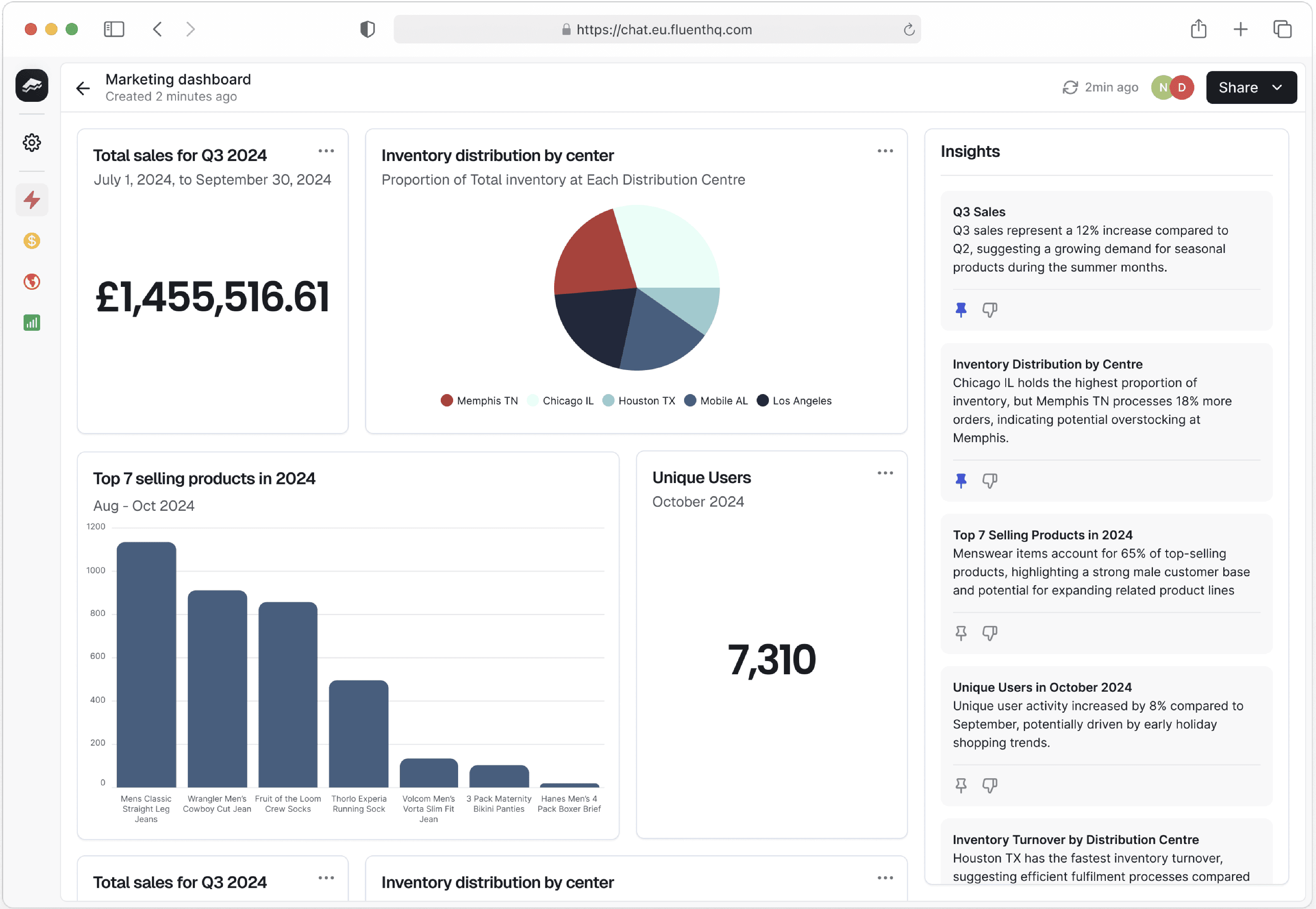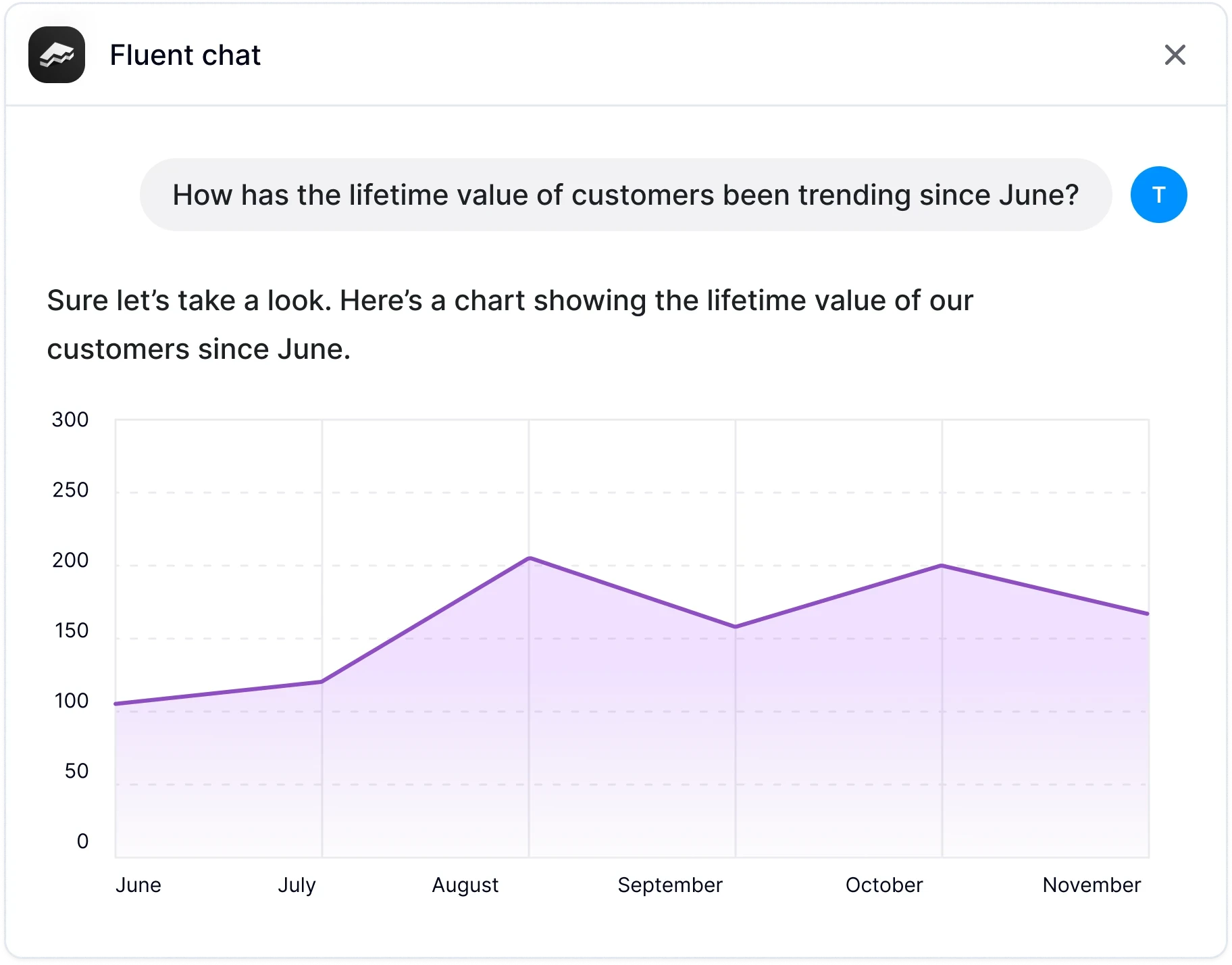Change management isn't corporate jargon - for a data team, it’s the difference between transformative tools and failed initiatives. You can buy the fanciest BI tool on the market, but if the wider business sees it as alien technology, you're still stuck being the data insights gatekeeper.
Business users care about two things when they ask a data question: accuracy (above everything) and speed (ideally). But they'll also gravitate towards paths of least resistance to get there.
Whether you're working in a media business racing against breaking news, as a retailer fighting for margins, or in research where one data point can change everything - it’s obvious why 'self-serve data insight' is as appealing a concept as it is. So, why aren't the business users engaging with the tools you give them?
The Trust Deficit in BI Tools
Let's be real. Your business users have heard promises before. They've been handed "revolutionary" data tools that were more headache than help.
Why do BI tools usually fail to win over a whole business? Three core reasons:
They lack a path of least resistance: People will choose to Slack an analyst over wrestling with a complex dashboard.
They're prone to complexity overload: Most data tools are built for data people. If generating a simple report requires taking a training course, you've already lost most of your team.
They produce data trust issues: Conflicting reports and opaque dashboards breed confusion, and intimidation around data exploration. Multiple "sources of truth" become sources of frustration.
NLQ presents an alternative. It quite literally speaks every user's language. It tackles the problems above head-on. NLQ doesn't replace analysts either - it's creates a manageable route to data insights.
Your head of sales wants to ask, "What were North America's sales last month?" and get an instant, reliable answer. They don’t want to learn SQL or pivot tables - NLQ lets them ask in plain English.
But introducing NLQ and AI is still change. And change is almost always hard. So, a little groundwork is needed, to build the lasting trust you want from the whole business.
Overcoming the AI Adoption Hurdle
Some groundwork is needed to encourage business users to start self-serving confidently, even with an NLQ solution.
1. Prep your data warehouse
Standardise core business metrics.
Work directly with business users to understand their most critical queries.
Choose NLQ tools with robust semantic layers for higher accuracy and tighter governance.
The goal: Predictable, not perfect, data and underlying logic that speaks your business's language.
2. Prioritize radically transparent solutions
Seek NLQ solutions that are good at clarifying queries.
Prefer models that are accuracy-first over answering-first - a tool that says "I don't know" is more trustworthy than one that guesses just to fulfil a request.
Business users like tracing the lineage of data insights; explainability builds confidence
The goal: Pick an NLQ solution that aims to be accurate and explainable.
3. Strategic Roll-Out
Target teams hungry for efficiency: marketing, finance, and sales are typical examples.
Demonstrate the querying process with them within their specific metrics and business context.
Create internal champions, offer them feedback loops during early usage and highlight positive experiences internally.
The goal: Create champions out of teams who send the most data requests
4. Integrate, don't disrupt
Embed your NLQ in existing tools like Slack or Teams.
Frame rollout as a natural workflow extension, not a disruption to the norm.
The goal: Meet your users where they are
Measuring Success
This isn't just about implementing a tool. It's about triggering an internal cultural shift. You want NLQ to feel as natural as grabbing coffee.
Track these usage metrics as your benchmarks for adoption.
Querying volumes per team and per user
Query performance
User satisfaction scores
Reduction in data support tickets
User adoption rates
Time saved across teams
Your Data, Their Language
For industries moving fast, NLQ isn't just a tool - it's a competitive advantage.
Just remember: Technology doesn't create trust on it's own. People do. Your job is to show this isn't another top-down mandate, but a genuine way to work smarter. Once one team starts exploring data on their own terms, their trust and enthusiasm can be infectious. Equally, NLQ tools built for data people will not fit into the world of a business user. When their trust is your currency, spend it wisely.
Work with Fluent
Put data back into the conversation. Book a demo to see how Fluent can work for you.
10 February 2025
Introducing dashboards
3 February 2025
Fluent Text-to-SQL: Fast, Accurate AI Data Querying
Stay up to date with the Fluent Newsflash
Everything you need to know from the world of AI, BI and Fluent. Hand-delivered (digitally) twice a month.



